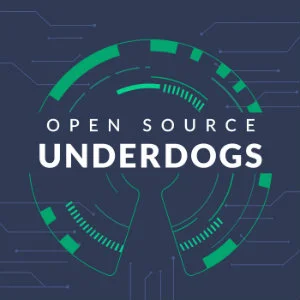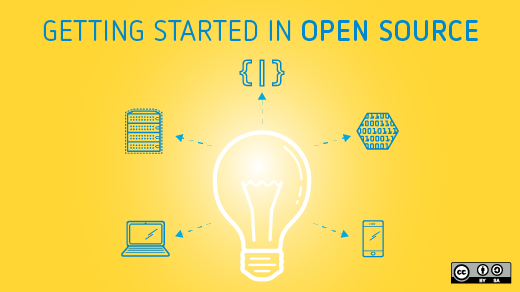When I started Gluu in 2009, I had no idea how difficult it would be to start an open source software company. Using the open source development methodology seemed like a good idea, especially for infrastructure software based on protocols defined by open standards. By nature, entrepreneurs are optimistic—we underestimate the difficulty of starting a business. However, Gluu was my fourth business, so I thought I knew what I was in for. But I was in for a surprise!
Every business is unique. One of the challenges of serial entrepreneurship is that a truth that was core to the success of a previous business may be incorrect in your next business. Building a business around open source forced me to change my plan. How to find the right team members, how to price our offering, how to market our product—all of these aspects of starting a business (and more) were impacted by the open source mission and required an adjustment from my previous experience.
A few years ago, we started to question whether Gluu was pursuing the right business model. The business was growing, but not as fast as we would have liked.
One of the things we did at Gluu was to prepare a "business model canvas," an approach detailed in the book Business Model Generation: A Handbook for Visionaries, Game Changers, and Challengers by Yves Pigneur and Alexander Osterwalder. This is a thought-provoking exercise for any business at any stage. It helped us consider our business more holistically. A business is more than a stream of revenue. You need to think about how you segment the market, how to interact with customers, what are your sales channels, what are your key activities, what is your value proposition, what are your expenses, partnerships, and key resources. We've done this a few times over the years because a business model naturally evolves over time.
In 2016, I started to wonder how other open source businesses were structuring their business models. Business Model Generation talks about three types of companies: product innovation, customer relationship, and infrastructure.
- Product innovation companies are first to market with new products and can get a lot of market share because they are first.
- Customer relationship companies have a wider offering and need to get "wallet share" not market share.
- Infrastructure companies are very scalable but need established operating procedures and lots of capital.

Mike Swartz, CC BY
It's hard to figure out what models and types of business other open source software companies are pursuing by just looking at their website. And most open source companies are private—so there are no SEC filings to examine.
To find out more, I went to the web. I found a great talk from Mike Olson, Founder and Chief Strategy Officer at Cloudera, about open source business models. It was recorded as part of a Stanford business lecture series. I wanted more of these kinds of talks! But I couldn't find any. That's when I got the idea to start a podcast where I interview founders of open source companies and ask them to describe what business model they are pursuing.
In 2018, this idea became a reality when we started a podcast called Open Source Underdogs. So far, we have recorded nine episodes. There is a lot of great content in all the episodes, but I thought it would be fun to share one piece of advice from each.
Advice from 9 open source businesses
Peter Wang, CTO of Anaconda: "Investors coming in to help put more gas in your gas tank want to understand what road you're on and how far you want to go. If you can't communicate to investors on a basis that they understand about your business model and revenue model, then you have no business asking them for their money. Don't get mad at them!"
Jim Thompson, Founder of Netgate: "Businesses survive at the whim of their customers. Solving customer problems and providing value to the business is literally why you have a business!"
Michael Howard, CEO of MariaDB: "My advice to open source software startups? It depends what part of the stack you're in. If you're infrastructure, you have no choice but to be open source."
Ian Tien, CEO of Mattermost: "You want to build something that people love. So start with roles that open source can play in your vision for the product, the distribution model, the community you want to build, and the business you want to build."
Mike Olson, Founder and Chief Strategy Officer at Cloudera: "A business model is a complex construct. Open source is a really important component of strategic thinking. It's a great distributed development model. It's a genius, low-cost distribution model—and those have a bunch of advantages. But you need to think about how you're going to get paid."
Elliot Horowitz, Founder of MongoDB: "The most important thing, whether it's open source or not open source, is to get incredibly close to your users."
Tom Hatch, CEO of SaltStack: "Being able to build an internal culture and a management mindset that deals with open source, and profits from open source, and functions in a stable and responsible way with regard to open source is one of the big challenges you're going to face. It's one thing to make a piece of open source software and get people to use it. It's another to build a company on top of that open source."
Matt Mullenweg, CEO of Automattic: "Open source businesses aren't that different from normal businesses. A mistake that we made, that others can avoid, is not incorporating the best leaders and team members in functions like marketing and sales."
Gabriel Engel, CEO of RocketChat: "Moving from a five-person company, where you are the center of the company, and it's easy to know what everyone is doing, and everyone relies on you for decisions, to a 40-person company—that transition is harder than expected."
What we've learned
After recording these podcasts, we've tweaked Gluu's business model a little. It's become clearer that we need to embrace open core—we've been over-reliant on support revenue. It's a direction we had been going, but listening to our podcast's guests supported our decision.
We have many new episodes lined up for 2018 and 2019, including conversations with the founders of Liferay, Couchbase, TimescaleDB, Canonical, Redis, and more, who are sure to offer even more great insights about the open source software business. You can find all the podcast episodes by searching for "Open Source Underdogs" on iTunes and Google podcasts or by visiting our website. We want to hear your opinions and ideas you have to help us improve the podcast, so after you listen, please leave us a review.






2 Comments